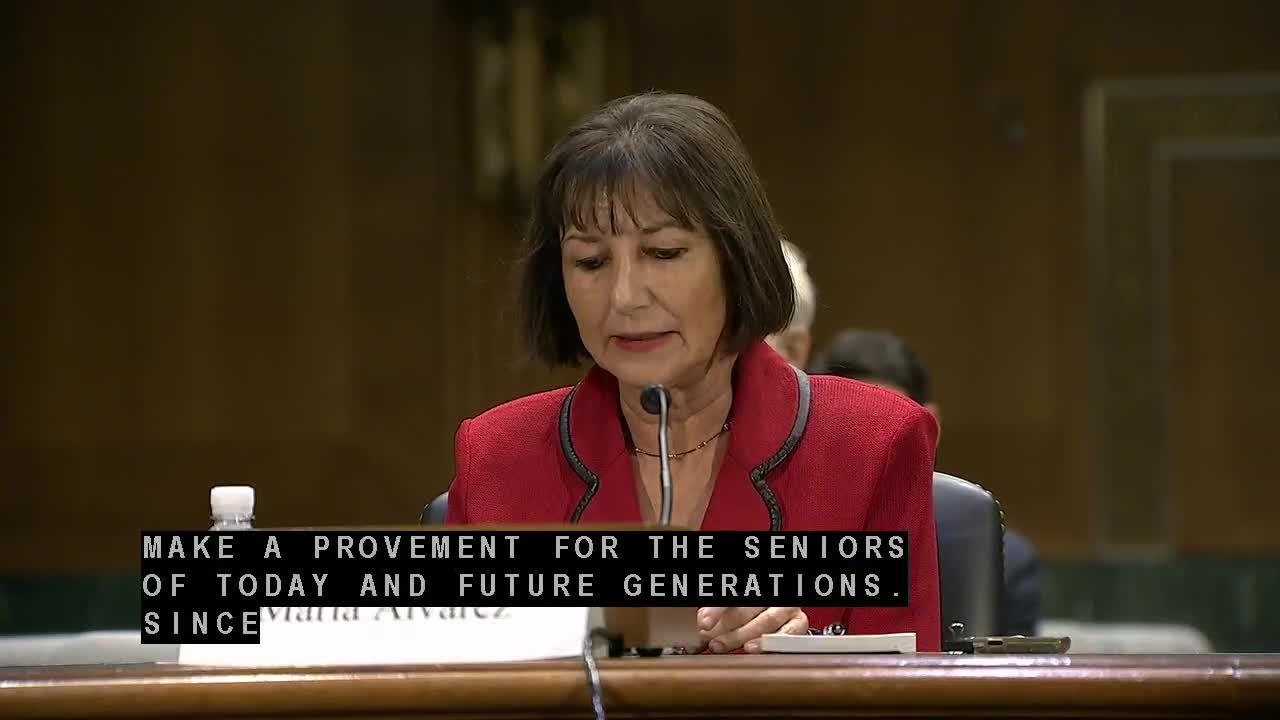Advocates and witnesses press Congress to shore up income supports, Older Americans Act and Medicaid home‑and‑community services
Get AI-powered insights, summaries, and transcripts
Subscribe
Summary
Witnesses told the Senate Aging Committee that income insecurity, rising housing and health costs, and insufficient funding for Older Americans Act programs and Medicaid home‑and‑community‑based services threaten seniors' ability to age with dignity; witnesses urged increased funding and stronger outreach to caregivers.
Maria Alvarez, executive director of the New York Statewide Senior Action Council, told the Senate Special Committee on Aging that income insecurity is widespread among older Americans. "The reality is that 1 in 3 senior citizens are not making ends meet. Their incomes are under 200% of the federal poverty level, roughly $30,000 a year," she said, and warned that homelessness among older adults is rising in some areas.
Alvarez credited Social Security, Medicare, Medicaid and the Older Americans Act with forming a critical framework for dignity and stability, but she said these programs need stronger funding and modernization to reflect demographic changes. She urged convening the White House Conference on Aging and noted that area agencies on aging and community‑based services remain essential touchpoints for seniors.
On Medicaid and home‑and‑community‑based services (HCBS), witnesses and senators said these supports allow many older adults to remain at home and are more cost‑effective than institutional care. Dr. Don Carr told senators that cuts to Medicaid HCBS would likely push more people into nursing facilities or onto family caregivers, increasing overall system costs and caregiver burdens.
Committee members highlighted caregiver strain. Witnesses and senators cited studies and testimony indicating family caregivers often shoulder substantial financial costs; Alvarez said family caregivers can spend an average of about 20% of their income on the person they care for. Senators asked about expanding Medicare Savings Programs and other targeted supports that reduce out‑of‑pocket costs for beneficiaries.
Members also discussed prescription drug affordability. Witnesses and senators praised recently enacted caps and the Inflation Reduction Act provisions that limit insulin costs and annual out‑of‑pocket spending, and said more work is needed to ensure seniors can afford medications without sacrificing other needs.
No formal committee votes or directives were recorded; witnesses recommended program funding increases, outreach to caregivers, and stronger payment and coverage policies to preserve community‑based care.
